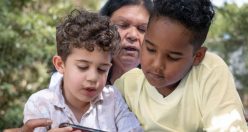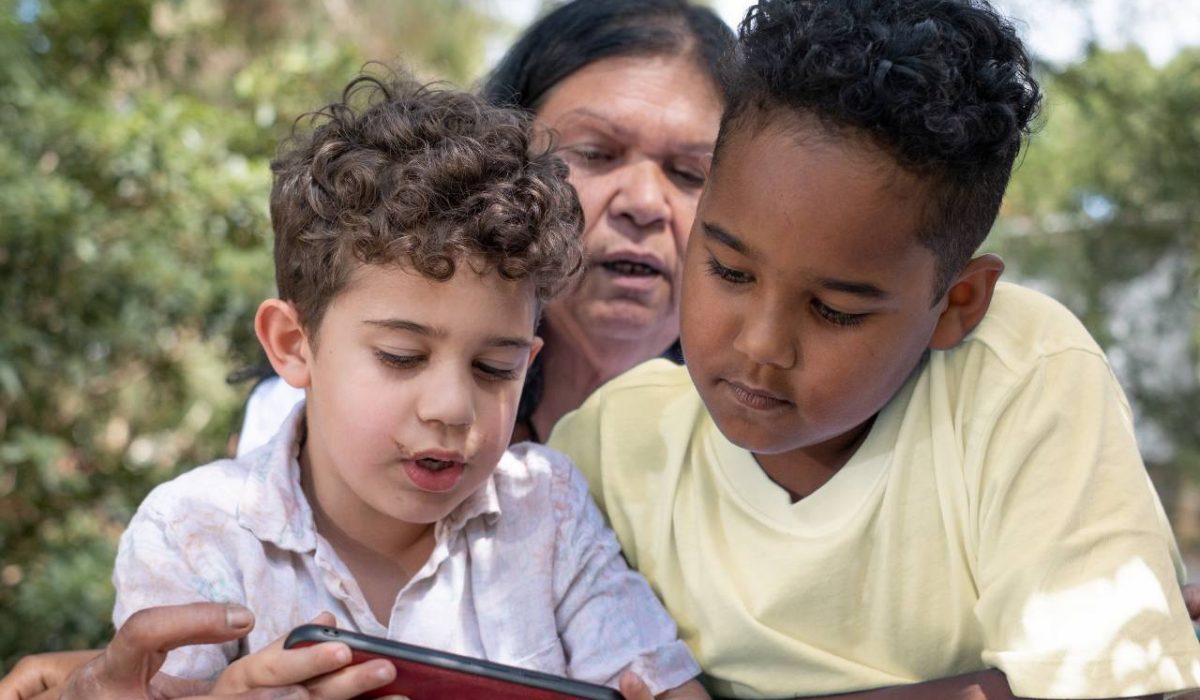Search Global Kids Online
-

The digital lives of Australia’s First Nations children
15th June 2023
A recent report by Australia’s eSafety Commissioner (eSafety) has found the internet plays a vital role in the lives of Aboriginal and Torres Strait Islander children, enabling them to form important cultural and social connections with friends and family. However, the report also shows that First Nations children are much more likely than the national average to have been treated in a hurtful or nasty way online, experiences that can lead to impaired mental health, perceived reputation damage and lower school performance.
-

Children’s experiences of risks online in Zambia
9th May 2022
Like children in many parts of the world, the COVID-19 pandemic profoundly affected the lives of children in Zambia, with many moving online for many of their daily activities and simply spending more time online. While there is no reliable data on the degree to which children were using the internet and technology before the pandemic, the recent Zambia Kids Online study undertaken across several sites within Zambia has provided some insight into children’s online experiences, both positive and negative.
-

Safer Internet Day 2022: what we are talking about today
8th February 2022
Safer Internet Day is celebrated globally in February to promote children’s safe and beneficial use of digital technologies. This year the celebrations are dedicated to the theme “All fun and games? Exploring respect and relationships online” acknowledging how young people are shaping the interactive entertainment spaces they are a part of online. Here is a quick overview of some relevant Global Kids Online resources on children’s internet safety.
-

Pathways from offline to online risk: new findings
9th February 2021
Children’s lives are increasingly mediated by digital technologies, yet our knowledge of how this affects their well-being is patchy. Today, UNICEF and LSE are launching our rapid evidence review aiming to identify the pathways to resilience and harm and the factors that can intensify risk or protect children from it. Ensuring children’s well-being and positive engagement with digital technologies requires more attention to long-term consequences and filling the gaps in our evidence, regulation, and education initiatives.
-

New comparative findings: what have we learned?
31st July 2020
Technologies are not beneficial or harmful all by themselves. Much depends on how technologies are designed, deployed and promoted by businesses and the state, on how parents interact with children in relation to digital contents and services at home, and how schools embed technologies in their curricula to support learning and participation. A new report compares findings from the Global Kids Online survey in Brazil, Chile, Costa Rica and Uruguay, pointing to the importance of media literacy, parental mediation, and state regulation for maximising children’s online benefits and minimising harm.
-

Done right, internet use can increase learning and skills
18th February 2020
Blanket restrictions on children’s internet use prevent them from taking advantage of critical learning and skills development opportunities, according to the new Global Kids Online report, launched today at the Internet Governance Forum in Berlin. Produced by the UNICEF Office of Research – Innocenti and the London School of Economics and Political Science (LSE), Growing up in a Connected World compares data on internet use among nearly 15,000 internet-using children in 11 countries across Europe, Africa, Southeast Asia and Latin America.
Popular tags








